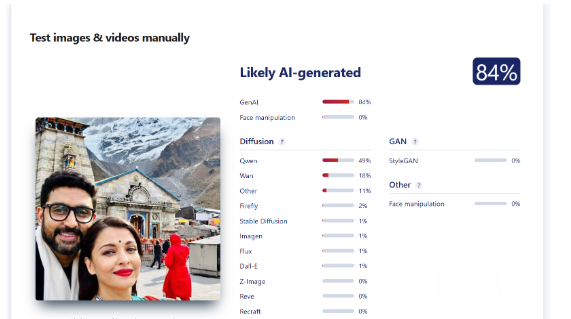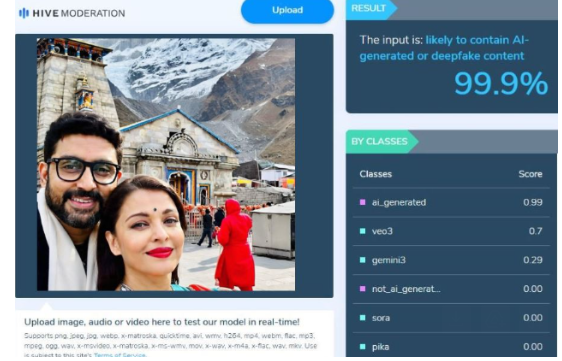Digital Evolution: Navigating the Challenges of 2023 – A Comprehensive Year in Review
Introduction
The spread of information in the quickly changing digital age presents both advantages and difficulties. The phrases "misinformation" and "disinformation" are commonly used in conversations concerning information inaccuracy. It's important to counter such prevalent threats, especially in light of how they affect countries like India. It becomes essential to investigate the practical ramifications of misinformation/disinformation and other prevalent digital threats. Like many other nations, India has had to deal with the fallout from fraudulent internet actions in 2023, which has highlighted the critical necessity for strong cybersecurity safeguards.
The Emergence of AI Chatbots; OpenAI's ChatGPT and Google's Bard
The launch of OpenAI's ChatGPT in November 2022 was a major turning point in the AI space, inspiring the creation of rival chatbot ‘Google's Bard’ (Launched in 2023). These chatbots represent a significant breakthrough in artificial intelligence (AI) as they produce replies by combining information gathered from huge databases, driven by Large Language Models (LLMs). In the same way, AI picture generators that make use of diffusion models and existing datasets have attracted a lot of interest in 2023.
Deepfake Proliferation in 2023
Deepfake technology's proliferation in 2023 contributed to misinformation/disinformation in India, affecting politicians, corporate leaders, and celebrities. Some of these fakes were used for political purposes while others were for creating pornographic and entertainment content. Social turmoil, political instability, and financial ramifications were among the outcomes. The lack of tech measures about the same added difficulties in detection & prevention, causing widespread synthetic content.
Challenges of Synthetic Media
Problems of synthetic media, especially AI-powered or synthetic Audio video content proliferated widely during 2023 in India. These included issues with political manipulation, identity theft, disinformation, legal and ethical issues, security risks, difficulties with identification, and issues with media integrity. It covered an array of consequences, ranging from financial deception and the dissemination of false information to swaying elections and intensifying intercultural conflicts.
Biometric Fraud Surge in 2023
Biometric fraud in India, especially through the Aadhaar-enabled Payment System (AePS), has become a major threat in 2023. Due to the AePS's weaknesses being exploited by cybercriminals, many depositors have had their hard-earned assets stolen by fraudulent activity. This demonstrates the real effects of biometric fraud on those who have had their Aadhaar-linked data manipulated and unauthorized access granted. The use of biometric data in financial systems raises more questions about the security and integrity of the nation's digital payment systems in addition to endangering individual financial stability.
Government strategies to counter digital threats
- The Indian Union Government has sent a warning to the country's largest social media platforms, highlighting the importance of exercising caution when spotting and responding to deepfake and false material. The advice directs intermediaries to delete reported information within 36 hours, disable access in compliance with IT Rules 2021, and act quickly against content that violates laws and regulations. The government's dedication to ensuring the safety of digital citizens was underscored by Union Minister Rajeev Chandrasekhar, who also stressed the gravity of deepfake crimes, which disproportionately impact women.
- The government has recently come up with an advisory to social media intermediaries to identify misinformation and deepfakes and to make sure of the compliance of Information Technology (IT) Rules 2021. It is the legal obligation of online platforms to prevent the spread of misinformation and exercise due diligence or reasonable efforts to identify misinformation and deepfakes.
- The Information Technology (Intermediary Guidelines and Digital Media Ethics Code) Amendment Rules 2021 were amended in 2023. The online gaming industry is required to abide by a set of rules. These include not hosting harmful or unverified online games, not promoting games without approval from the SRB, labelling real-money games with a verification mark, educating users about deposit and winning policies, setting up a quick and effective grievance redressal process, requesting user information, and forbidding the offering of credit or financing for real-money gaming. These steps are intended to guarantee ethical and open behaviour throughout the online gaming industry.
- With an emphasis on Personal Data Protection, the government enacted the Digital Personal Data Protection Act, 2023. It is a brand-new framework for digital personal data protection which aims to protect the individual's digital personal data.
- The " Cyber Swachhta Kendra " (Botnet Cleaning and Malware Analysis Centre) is a part of the Government of India's Digital India initiative under the (MeitY) to create a secure cyberspace. It uses malware research and botnet identification to tackle cybersecurity. It works with antivirus software providers and internet service providers to establish a safer digital environment.
Strategies by Social Media Platforms
Various social media platforms like YouTube, and Meta have reformed their policies on misinformation and disinformation. This shows their comprehensive strategy for combating deepfake, misinformation/disinformation content on the network. The platform YouTube prioritizes eliminating content that transgresses its regulations, decreasing the amount of questionable information that is recommended, endorsing reliable news sources, and assisting reputable authors. YouTube uses unambiguous facts and expert consensus to thwart misrepresentation. In order to quickly delete information that violates policies, a mix of content reviewers and machine learning is used throughout the enforcement process. Policies are designed in partnership with external experts and producers. In order to improve the overall quality of information that users have access to, the platform also gives users the ability to flag material, places a strong emphasis on media literacy, and gives precedence to giving context.
Meta’s policies address different misinformation categories, aiming for a balance between expression, safety, and authenticity. Content directly contributing to imminent harm or political interference is removed, with partnerships with experts for assessment. To counter misinformation, the efforts include fact-checking partnerships, directing users to authoritative sources, and promoting media literacy.
Promoting ‘Tech for Good’
By 2024, the vision for "Tech for Good" will have expanded to include programs that enable people to understand the ever-complex digital world and promote a more secure and reliable online community. The emphasis is on using technology to strengthen cybersecurity defenses and combat dishonest practices. This entails encouraging digital literacy and providing users with the knowledge and skills to recognize and stop false information, online dangers, and cybercrimes. Furthermore, the focus is on promoting and exposing effective strategies for preventing cybercrime through cooperation between citizens, government agencies, and technology businesses. The intention is to employ technology's good aspects to build a digital environment that values security, honesty, and moral behaviour while also promoting innovation and connectedness.
Conclusion
In the evolving digital landscape, difficulties are presented by false information powered by artificial intelligence and the misuse of advanced technology by bad actors. Notably, there are ongoing collaborative efforts and progress in creating a secure digital environment. Governments, social media corporations, civil societies and tech companies have shown a united commitment to tackling the intricacies of the digital world in 2024 through their own projects. It is evident that everyone has a shared obligation to establish a safe online environment with the adoption of ethical norms, protective laws, and cybersecurity measures. The "Tech for Good" goal for 2024, which emphasizes digital literacy, collaboration, and the ethical use of technology, seems promising. The cooperative efforts of people, governments, civil societies and tech firms will play a crucial role as we continue to improve our policies, practices, and technical solutions.
References:
- https://news.abplive.com/fact-check/deepfakes-ai-driven-misinformation-year-2023-brought-new-era-of-digital-deception-abpp-1651243
- https://pib.gov.in/PressReleaseIframePage.aspx?PRID=1975445








